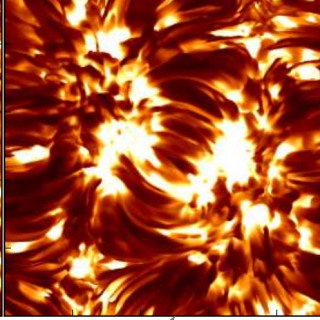Bibcode
Belluzzi, L.; Trujillo Bueno, J.
Referencia bibliográfica
Astronomy and Astrophysics, Volume 564, id.A16, 18 pp.
Fecha de publicación:
4
2014
Revista
Número de citas
33
Número de citas referidas
29
Descripción
The linear polarization signals produced by scattering processes in
strong resonance lines are rich in information on the magnetic and
thermal structure of the chromosphere and transition region of the Sun
and of other stars. A correct modeling of these signals requires
accounting for partial frequency redistribution effects, as well as for
the impact of quantum interference between different fine structure
levels (J-state interference). In this paper, we present a theoretical
approach suitable for modeling the transfer of resonance line
polarization when taking these effects into account, along with an
accurate numerical method of solution of the problem's equations. We
consider a two-term atom with unpolarized lower term and infinitely
sharp lower levels, in the absence of magnetic fields. We show that by
making simple formal substitutions on the quantum numbers, the
theoretical approach derived here for a two-term atom can also be
applied to describe a two-level atom with hyperfine structure. An
illustrative application to the Mg ii doublet around 2800 Å is
presented.
Proyectos relacionados

Magnetismo, Polarización y Transferencia Radiativa en Astrofísica
Los campos magnéticos están presentes en todos los plasmas astrofísicos y controlan la mayor parte de la variabilidad que se observa en el Universo a escalas temporales intermedias. Se encuentran en estrellas, a lo largo de todo el diagrama de Hertzsprung-Russell, en galaxias, e incluso quizás en el medio intergaláctico. La polarización de la luz
Ernest
Alsina Ballester